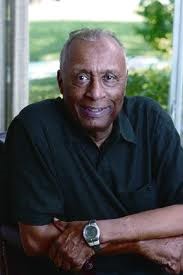
February is our nation’s observation of Black History. It is disheartening to think of the controversy surrounding this very important holiday.
Some people have joked, “We were given the shortest month of the year to celebrate Black History.” The truth is that Dr. Carter G. Woodson; Father of Black History picked February because it corresponded with the birthdays of Frederick Douglass and Abraham Lincoln, two men that he admired.
This is not just Black History that we are celebrating but the history of America and the world. Many great and useful inventions that are being used daily and taken for granted is because many individuals wrongly believe that Black people are incapable of inventing anything worth while or that it’s pure accident when Black Americans invent anything.
One prime example is Henry T. Sampson, the Black man who patented the gamma-electric cell, Patent No. 3,591,860, which gave birth to the modern use of cell phones, I-Phones and Blackberries, etc. on July 6, 1971.
Mobile Communications took a big step forward in 1983 with the invention of the Cellular System regulating the portable telephones, which use radio waves to transmit and receive audio signals. There are many stories of lives being saved because of the use of the cell phones, I-Phones, Blackberries, etc., which are used World-Wide.
I often say, “Henry T. Sampson, could not have imagined the use of cell phones in today’s society.” On a trip to Hong Kong China one year I was amazed to see so many people with cell phones. I asked a Tour Bus Guide if she used her house phone as much as she formerly did before she purchased her cell phone, she told me that very few people in China had house phones; and now; the majority of people in America only use cell phones I-Phones, Blackberries, etc.
Many of my friends and associates do not have line-based phones in their homes anymore, they say they never use them, only their cell phones, so why pay for a phone they never use, it’s a waste of their money.
Some individuals easily accept that we have famous entertainers, sports figures and a few entrepreneurs making millions of dollars; but they are slow to recognize that there are many Black Americans that have excelled, and are continuing to excel and invent useful devices using math and science to make a difference in how we live, work, play and entertain today. They invent daily things that are useful and life changing.
Dr. Carter G. Woodson was born in New Canton, Virginia. One of the first Black Americans to receive a doctorate from Harvard, He dedicated his career to the field of Black American history and lobbied extensively to establish Black History Month as a nationwide institution. He also wrote many historical works, including the 1933 book The Mis-Education of the Negro in 1933.
The first son of nine children, the young Woodson worked as a sharecropper and a miner to help his family. He began high school in his late teens and proved to be an excellent student, completing a four-year course of study in less than two years.
Dr. Woodson said, “Those who have no record of what their forebears have accomplished lose the inspiration which comes from the teaching of biography and history.” He was a distinguished Black author, editor, publisher, and historian who put his money, life, blood, sweat and tears in establishing Black History Week, (in the 1960s it was established as Black History “Month”.)
He also believed that Blacks should know their past in order to participate intelligently in the affairs in our country. He strongly believed that Black History—which others (even some Black Americans) have tried so diligently to erase—is a firm foundation for young Black Americans to build on in order to become productive citizens of our society.
Dr. Woodson often said that he hoped the time would come when Negro History Month would be unnecessary; when all Americans would willingly recognize the contributions of Black Americans as a legitimate and integral part of the history of this country. His concept has given a profound sense of dignity to all Black Americans; and we must not forget it! Nor should we stop Black History Month.




